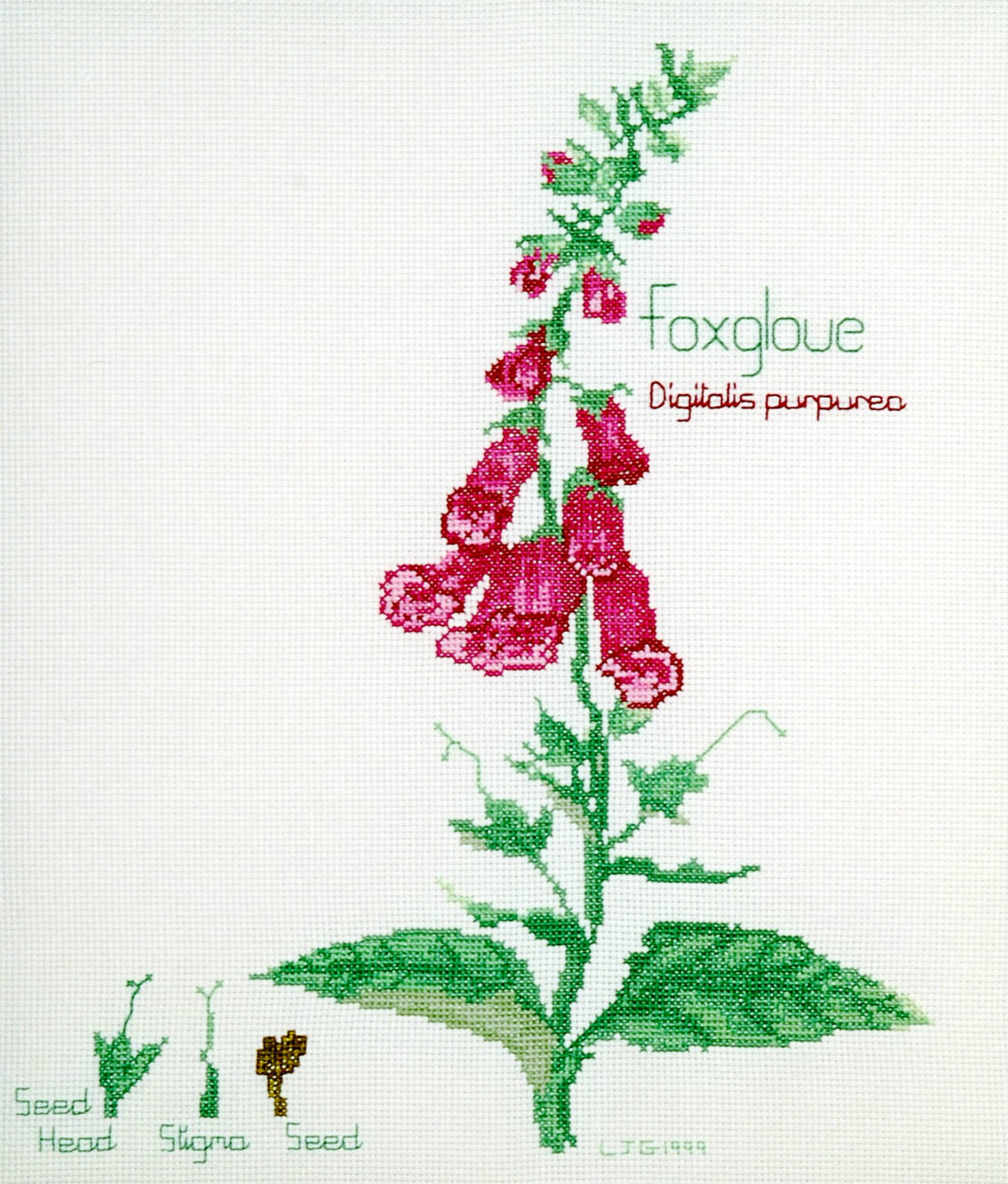Foxglove Cross Stitch Kit
A delightful botanical style cross stitch of a Foxglove and also part of our botanical range.
Foxglove
Digitalis purpurea
This attractive plant with it’s deep pink flowers and soft green leaves just had to be made into our Foxglove cross stitch Kit, it was a pleasure to design and stitch.
The foxglove is a well known and popular plant found across Britain both in gardens and in the wild. There is a wide variety of cultivars for the garden, but the wild foxglove tends to have a spike of deep pink to purple flowers which can grow to a height of 2m. It flowers from June to September.
It is a plant popular with bees, the bright colour of the flowers and the spotted lip attract the bees. The bees are able to land on the lower lip and push into the tube of the flower, this process means that they cover themselves in pollen which is then transferred to another plant.
The foxglove is a medicinally important plant, the leaves known as digitalis contain several cardiac glycosides, these are used to make important cardiac medicines used to regulate the heart rate. The foxglove is grown commercially as a field crop but not in Britain, our supplies are imported.
Other uses for the foxglove were an infusion of the leaves to treat colds, fevers and catarrh and compresses used for bruises, swellings and ulcers. A common past use, discovered by William Withering in the 1770s was for the treatment of ‘dropsy’ (accumulation of fluid in the tissues). This led to widespread use of the plant in medicine often successfully but sometimes with fatal results.
All parts of the Foxglove plant are poisonous, the flowers are the least so, but ingestion of these can cause upset stomach – do not eat it!






